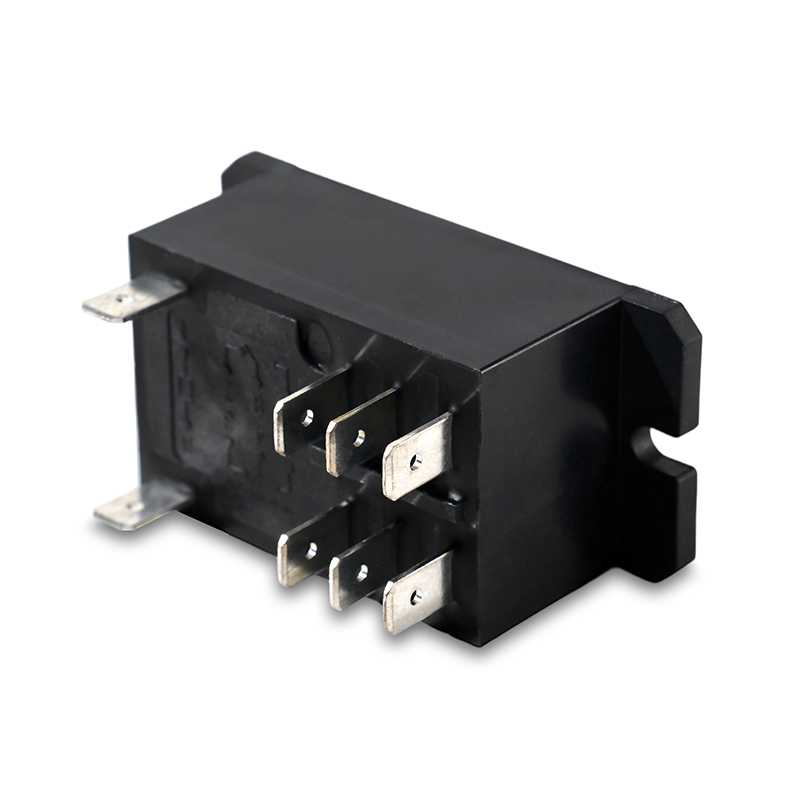Smart factories rely on a combination of advanced technologies to achieve efficiency, flexibility, and safety. Among the core components that ensure smooth operation, electrical power relays play a vital role. These devices provide reliable switching of electrical circuits, allowing automation systems to control machinery, lighting, and other essential equipment without direct human intervention. Their integration into factory systems helps maintain consistent performance and reduces the risk of electrical faults.

Electrical power relays serve as intermediaries between low-power control circuits and high-power machinery. In a smart factory, automation controllers often operate at low voltage levels, while industrial machines require higher currents to function. The relay bridges this gap, allowing signals from programmable logic controllers (PLCs) or other control devices to safely activate motors, pumps, and conveyor systems. By providing isolation between control and power circuits, relays protect sensitive electronics and enhance overall system reliability.
One of the advantages of modern relays is their compatibility with standard mounting options. The 8 pin octal relay socket, for example, offers a convenient way to install and replace relays without extensive rewiring. These sockets allow technicians to remove a relay quickly for maintenance or upgrades, less factory downtime. The standardized pin configuration also supports modular system design, making it easier to expand or modify automation lines as production needs change.
Safety is a critical concern in automated environments. Relays contribute to this by providing controlled switching in emergency shutdown systems, overload protection, and circuit isolation. Electrical power relays can be configured to trigger alarms or stop machinery in the event of abnormal conditions, helping prevent equipment damage and ensuring worker safety. Additionally, integrating relays with monitoring systems enables real-time tracking of electrical loads and operational status, supporting predictive maintenance strategies.
Smart factories often operate multiple machines simultaneously, pilot to fluctuating power demands. Relays help reduce electrical stress on circuits by ensuring that switching occurs in a controlled manner. This prevents voltage spikes and protects components from wear or failure. For applications with frequent switching cycles, relays are designed to handle repeated operations without significant degradation, providing consistent performance over time.
Electrical power relays are versatile and compatible with various automation systems. They can work alongside PLCs, human-machine interfaces (HMIs), and industrial networking equipment to provide precise control over factory processes. Using 8 pin octal relay sockets simplifies the wiring and allows for quick adaptation if process changes are needed. This modularity supports flexible manufacturing setups, which are increasingly important in modern production environments where product lines may change frequently.
In addition to process control, relays play a role in energy management. By enabling timed switching, load shedding, and selective operation of non-essential equipment, they help reduce overall energy consumption. Smart factories can use relay-based control circuits to ensure that machinery operates only when needed, improving efficiency without compromising production output.
Maintaining relay systems is straightforward due to their modular design and standardized socket connections. Regular inspection and replacement of worn components keep systems running smoothly. The 8 pin octal relay socket allows for fast swap-outs, less disruption to production schedules. Properly installed electrical power relays can remain functional for years, providing dependable performance while reducing the frequency of major repairs.
Electrical power relays are essential components in smart factory automation, enabling safe, flexible, and efficient operation. Paired with 8 pin octal relay sockets, they offer convenient installation, easy maintenance, and reliable switching of industrial circuits. From controlling motors and conveyor belts to supporting safety and energy management, relays ensure that automation systems function smoothly while reducing risks to equipment and personnel. As factories continue to embrace digital control and flexible production methods, the role of relays in maintaining consistent, safe, and adaptable operations remains indispensable.
Quick Contact
Yueshang Innovation Park, Wengyang Street, Yueqing City, Zhejiang, China
Pages
Stay In Touch
If you have any questions or need help, feel free to contact with our team.